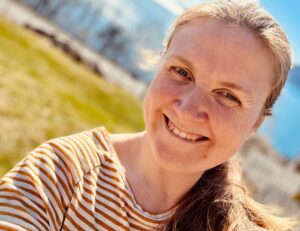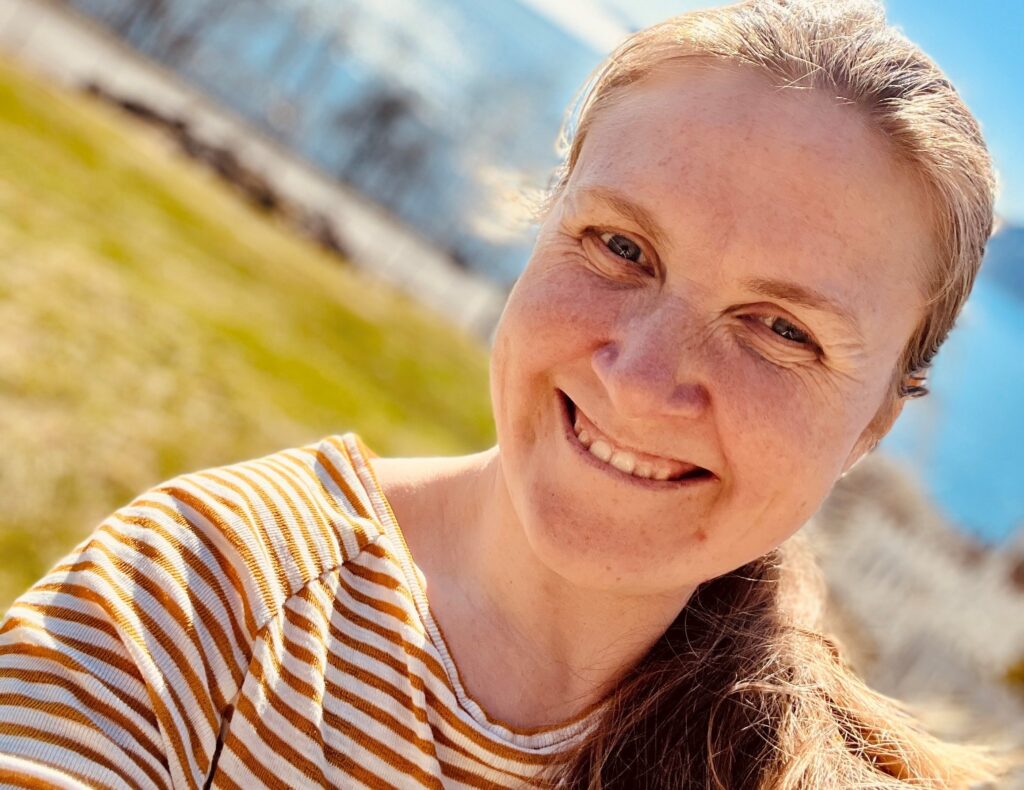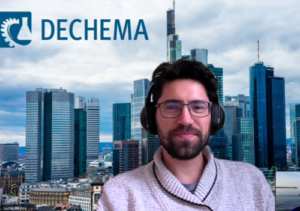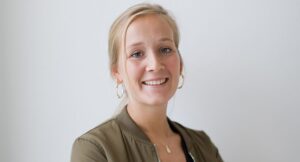
Martha Bjarnar Gjermo is an alumni of EJWP from Norway. She participated in our first group of young professionals connecting and building on their skills in the sector. We caught up with Martha to see what she is working on today, and how impressions from the two-year EJWP journey are still relevant in her work.
What are you working on now?
I’ve changed jobs since EJWP, and am now working for the municipality of Drammen Water and Wastewaster Agency as a Climate Advisor. I am responsible for our implementation and work on climate strategy, and adaptation to national and international regulations on climate. After EJWP, my interest for water became stronger as I realized the importance of water, and knew I wanted to work in this sector. So now as an environmental and resource economist, I’m quite happy to continue my work in the water sector combining water and climate. Through EJWP I learned a lot about team building, personal leadership and cultural differences, and it was also good for me to have the EJWP group as “colleagues” as I worked in a startup where we were only two people most of the time.
Recently I created a climate management model for our agency to ensure that we are able to bring strategy into action, and that we implement the right measures at the right time. So far much of the focus has been on CO2 reduction and energy use, but the model can also facilitate a broader sustainability approach in the future. I’ve also created a national climate network with other municipal agencies. People are in general very interested to join the conversation on climate, and the network almost created itself. I really enjoy bringing people together and to learn and be inspired by other people’s thoughts, knowledge and ideas!
What difference has your EJWP experience made in your career so far?
We were often out of our different comfort zones in EJWP exercises, so now interacting in a conference or giving a speech which may earlier have been intimidating is now smoother because I already have experience from our trainings. For example, in Brussels we were delivering 5-minute wraps on panel discussions for a large audience group, with absolutely no time to prepare at all. – scary!
I still have contact with my EJWP group! With Norway being outside of the Brussels zone, we talk about EU directives at work, but I have learned most of what I know about EU-politics from the other participants in my EJWP group.
I also learned a lot about the value and complexity of water through EJWP, and my path led me to where I am through the startup company that was working with water. On a personal level, I definitely made some longtime relationships that I’m happy for, and that is important for me. We learned a lot from each other, and it was also good to have a diverse group with people from several regions, with different roles and different backgrounds. That said, it can also be useful to participate in networks around your professional area that are more focused, and where participants have some common ground. I’m the only one in my organization who works with climate, so having climate-water contacts and a climate network is really important to me.
How do you see the value of connecting organizations in the sector?
Sharing information between actors and stakeholders in the sector is very important. The way we organize water in countries is quite different, and when sharing information, this can be useful to take into account. We also experience climate change differently in different regions, and our natural climate, nature and a number of different factors are different between countries, regions and sometimes even cities close to each other. Still, there is a lot to gain from cooperation, and learning from each other is the way forward.
How do you see young professionals’ contribution in the sector and in global platforms?
The willingness and spark to work on climate is often high in younger generations. We should give them the room and the space to create needed change. I have a lot of flexibility and responsibility in my position, and my leaders trust my ability to make good decisions. This is important, because it makes it possible for young professionals to achieve needed change and to achieve climate goals in their organizations.
Do you feel like you are making a difference with your work?
Yes. I feel like I do, since I’m involving a number of people in my organization in the process to make an impact. It definitely feels like it’s the beginning of something bigger. Climate work is challenging, change is always difficult, but we have to prioritize it – like water.
Are there ways you can contribute to the development of young professionals?
Everyone of all ages should learn and share their climate knowledge. We should also recognize that young people often have a lot of knowledge and motivation coming out of universities. We should respect them for this; treat them according to their knowledge and not their age. I’ve met younger people who know a lot more than me, and that is really cool!






